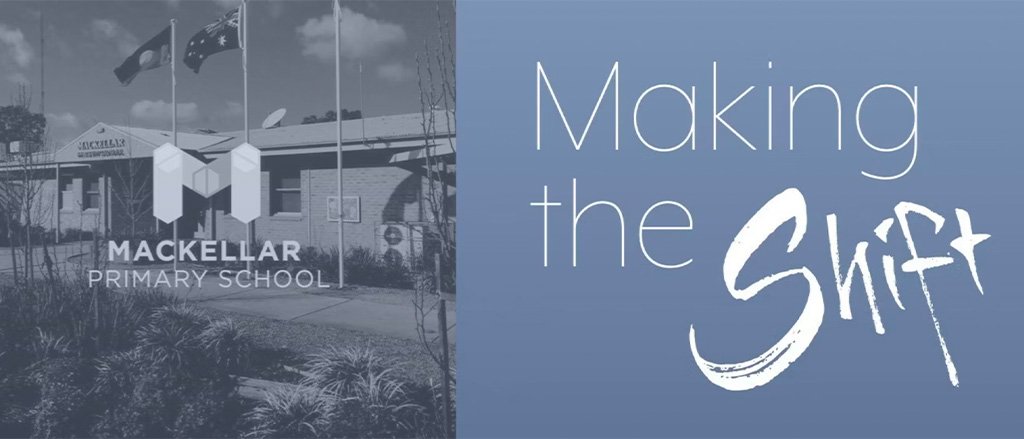
Insights
A blog to inspire your professional journey as an educator
How Learners Can Achieve SMART Goals Using Destinations, Milestones, and Footsteps™
Here’s how learners can achieve SMART learning goals using the Destinations, Milestones, and Footsteps™ framework from Future-Focused Learning.
How Professional Learning Communities Use Destinations, Milestones, and Footsteps™ for Meaningful Professional Development
How can professional learning communities experience meaningful professional development while building learner agency? Learn how to use a simple and intuitive process that gets it right every time.
Developing Learner Agency With Destinations, Milestones, and Footsteps™
Integrating SMART goals in developing learner agency and autonomy with the help of Destinations, Milestones, and Footsteps™ guides learners to set realistic and personal benchmarks that lead to meaningful educational experiences.
The Simplest and Most Effective Strategic Planning System for School Leaders
Effective strategic planning involves long-term goals and determining the best course of action to achieve them. The Destinations, Milestones, and Footsteps™ framework provides the best approach to this kind of planning.
This Is What Learner Agency Really Means (And What It Doesn’t Mean)
In recent years, there has been a significant surge in the prevalence and recognition of the term "learner agency". But what does it really mean? And what does it not mean?
Why Learner Agency Belongs in Every Modern Classroom
Agency has gained prominence in recent years as educators recognize its profound value. Here’s why it deserves a place in every modern classroom, regardless of year level or pedagogy.
Case Study: Making the Shift at Evelyn Scott School
Explore the journey of Evelyn Scott School as they move from agents to agency in one of Canberra’s most unique P–10 schools.
50 Proven Strategies and 150 Actionable Steps to Foster a Growth Mindset in Australian Schools
Explore these strategies educators, school administrators, and stakeholders in the Australian education system can use to begin instilling a growth mindset in schools.
This is How to Build a Mindful Classroom for Student-Centered Learning
What is a mindful classroom? How does it work, and how does the concept fit into teaching and learning? Most importantly, what does it mean for our learners?
5 Mindfulness Quotes That Help Define Its Essence
Mindfulness is day-to-day learning about ourselves, others, and how we are all connected. The quotes we've chosen here are to help you learn more of what mindfulness is about.
7 Stimulating Ways You Can Make Mindfulness Fun
How would you feel about practicing mindfulness and enjoying yourself simultaneously? If that idea appeals to you, then this article featuring seven ways to do just that is for you.
4 Healthful Benefits of Practicing Mindfulness
There is never a wrong or difficult time to begin being more mindful. Here are four of the potential health benefits a dedicated mindfulness practice can bring you.
Case Study: Making the Shift at Mackellar Primary
Discover the exceptional work regarding learner agency being done by Simon McGlade and the teaching team at Mackellar Primary School.
4 Inspiring Stories of How Great Teachers Changed Someone's Life
Here are a few short and inspiring stories of how great teachers changed the lives of a few of the most well-known individuals in the world.
Balancing Our Conversations With JUICE
Is there a way we can maximize the potential benefits of a good conversation for all the parties involved? Yes, there is, and it’s called JUICE. Read on for more.
How Reframing Turns Problems Into Opportunities
Reframing is about shifting from a deficit mindset to a possibilities mindset. Here’s how to do it right.
How Mindfulness Inspires Our Creativity
How does our understanding of the essence of mindfulness contribute to the blossoming of our creative potential?
How Belonging, Inclusion, and Community Create Meaningful Learning
How can we create a community of belonging and inclusion that develops authentic learning experiences for our kids?
9 Ways Teachers Can Cultivate a Growth Mindset to Enjoy Teaching
Growth mindset is a way of thinking and acting in the world. Here are some proactive measures to adopt, model, and infuse the qualities of the growth mindset in your practice.
Why Developing Strong Learning Connections Matters to Meaningful Learning
Making strong learning connections is among our highest priorities as educators because, without connection and relevance to the learner, there is no learning.




















